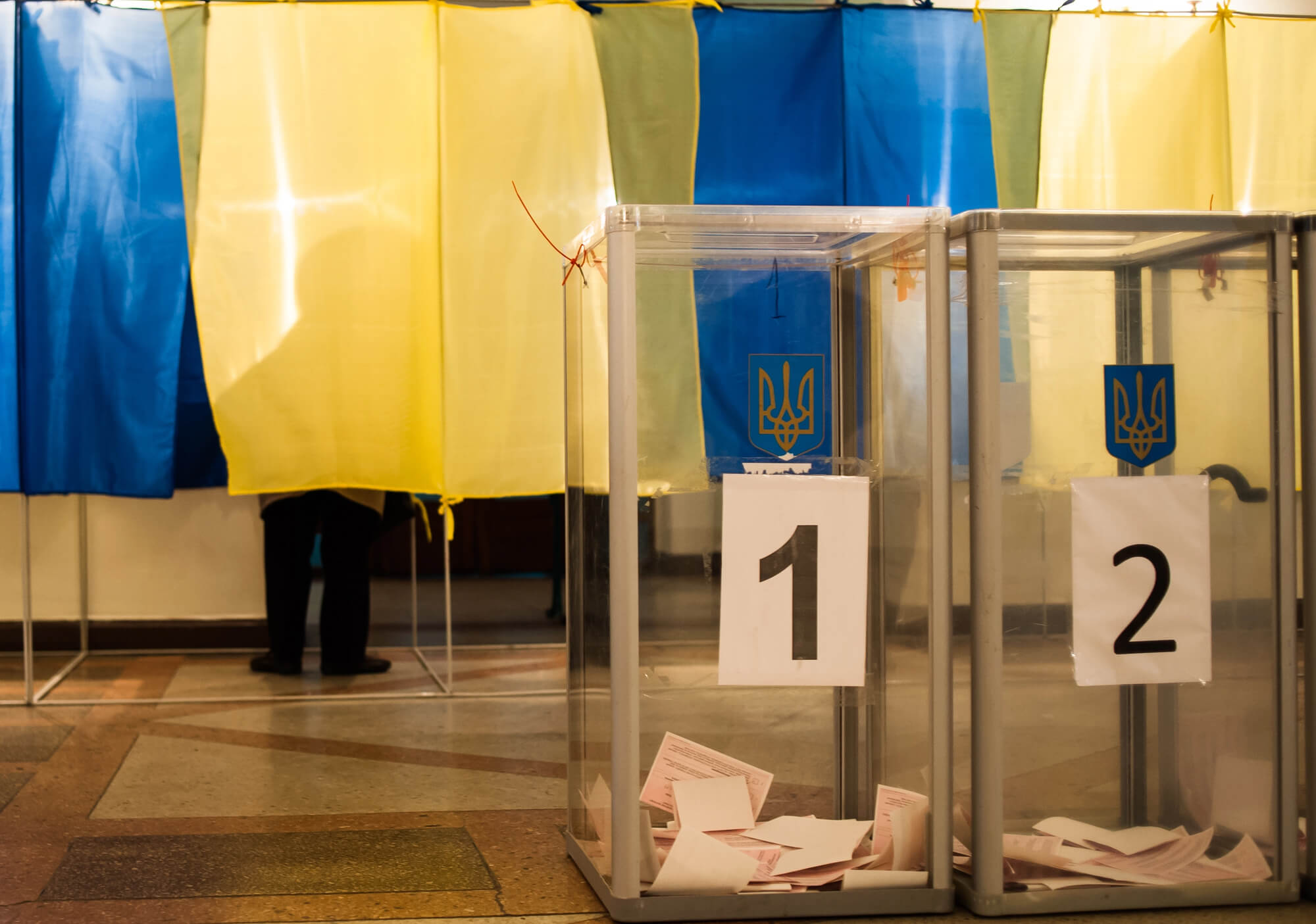The authors of the previous article did not see a clear statistical proof that the election results in the 205th polling district in Berezenko were manipulated. I disagree with their conclusion and present additional facts that shed light on the elections results.
Disclosure: Representative of Democratic Alliance party Igor Andriichenko campaigned in the latest elections and finished 4th with 7.98% share of votes.
First, the authors did find a strong and significant correlation between the results of winner Berezenko and voter turnout at the polling stations. Yes, if compared to elections in Donetsk in 2012, such a correlation might seem usual. But Donetsk in 2012 cannot be considered as a benchmark for democratic elections. We need to compare the latest elections with the previous elections in the same 205th polling district in Chernigiv.
In fact, significant correlation between the winner result and turnout was not present neither in 2012 elections nor in 2014 elections in the district. In 2012 even the candidate from the ruling Party of Regions did not get a higher share of votes at stations with high turnout.
Shown in the table are the regression results for the winners (Berezenko in 2015, Kulich in 2014, both from Poroshenko Block, Dubil in 2012 from Batkivshchyna) and runner-up Sokolov in 2012 from the ruling Party of Regions. The elections of 2015 are clearly distinctive since the correlation of turnout and the result of winner Berezenko is both high and significant. This is a strong argument to prove that the voting results of 2015 were manipulated.
Notes: the dependent variable is the share of votes for a candidate shown in the columns. Standard errors are in parentheses. *** denotes statistical significance at the 1 percent level. 11 special polling stations are excluded. For 2012 results, I additionally excluded 4 outliers
Second, the latest elections exhibit a very unusual pattern of mutual correlations between the winner’s results and the results of each of the other major candidates.
If we regress the winner’s share of votes at the polling stations on the share of votes for another candidate, we can study the interplay of their results. For major rivals and ideological opponents we would expect to see a negative and significant mutual correlation. However, given the high number of candidates, some mutual correlations are expected to be insignificant if the candidates are not rivals or ideological opponents.
For example, in 2012 the result of winner Dubil significantly affected the result of his rival Sokolov from Party of Regions and ideological outsider Davletkuzhyn from Communist Party. Still, there was no significant correlation between the winner and the 3rd place results. This is what we expected to see in fair elections.
In 2014 the pattern is similar. The result of winner Kulich is mutually correlated with the result of his rival Deryzemlya (however, only at 10% significance level), representative of Communist Party Shuman and candidates Dolesko and Gretskyi. But the results of other four major candidates (Andriichenko, Pytskiv, Tkach, Kadenyuk) show no dependency on the winner’s share of votes. This is a good point for supporting the fact that the elections of 2014 were fair.
Notes: the dependent variable is the share of votes for a candidate shown in the columns. Standard errors are in parentheses. ***, ** and * denote statistical significance at the 1, 5 and 10 percent level, correspondingly. 11 special polling stations are excluded. For 2012 results, I additionally excluded 4 outliers.
Notes: the dependent variable is the share of votes for a candidate shown in the columns. Standard errors are in parentheses. ***, ** and * denote statistical significance at the 1, 5 and 10 percent level, correspondingly. 11 special polling stations are excluded. For 2012 results, I additionally excluded 4 outliers.
Notes: the dependent variable is the share of votes for a candidate shown in the columns. Standard errors are in parentheses. ***, ** and * denote statistical significance at the 1, 5 and 10 percent level, correspondingly. 11 special polling stations are excluded. For 2012 results, I additionally excluded 4 outliers.
But 2015 elections are different. The leader’s results significantly and negatively correlates with the results of all (!) major candidates. This could be possible if Berezenko’s program were totally different from the programs of all other major candidates (in a similar way how the views of a pro-European candidate differ from the views of a communist candidate). But this is not true, given the high number of various candidates.
So, Berezenko run an effective campaign in a sense he was able to get additional votes at the expense of all other candidates. From our previous results, we know that those additional votes for Berezenko came from polling stations with high turnout. Such a pattern cannot be normally observed in fair and democratic elections. If we connect the findings with numerous reports on the extravagant election campaigning (for example, distribution of cash and goods to prospective voters, signing shady agreements with voters, a huge influx of athletes to the polling stations in the role of “journalists”), we have an evidence that those questionable practices eventually affected results.
I do not claim, however, that the manipulations affected the selection of the winner. In fact, Berezenko scored a solid victory gaining 35.6% of total votes vs 14.8% for runner-up Korban. Even if we take into account 1.6% of votes for technical candidate Karban (whose surname is similar to ‘Korban’ and was printed just before ‘Korban’ in the long polling ballot with the total of 91 candidate), it does not make much difference for selecting the winner. Nevertheless, statistical tools show a clear warning sign that something went wrong during the latest elections. I hope that Ukrainian democracy took a step aside, not a step back.
Attention
The author doesn`t work for, consult to, own shares in or receive funding from any company or organization that would benefit from this article, and have no relevant affiliations








